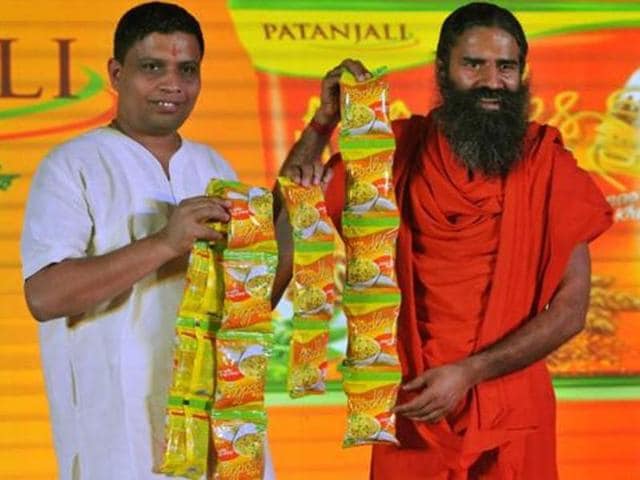How yoga guru Ramdev turned FMCG business on its head with ‘upkar’
Ramdev’s inputs are not limited to product concepts. He made it a point to fill his purchase department with ascetics because he thinks they are too honest to steal.
This should come as no surprise. Ramdev, who first made a name for himself by contorting his body in seemingly impossible ways, is turning the FMCG business on its head. To begin with, he says, he is not doing vyapar (trade), he is doing upkar (an act of benevolence).

For proof of the upkar, he offers the natural goodness of his products and their low prices. For products such as aloe vera juice, he claims to charge a seventh of what other companies do. That appears too little an explanation for the rise of Patanjali, which is tipped by brokerage houses to pose the biggest challenge to Colgate, a multinational giant, and clock Rs 20,000 crore in turnover in five years.
“Five years is too long, we will do that in three,” says Ramdev. Even on the current annual turnover of Rs 5,000 crore, 10-year-old Patanjali rakes in more than the domestic revenues of entrenched FMCG companies such as Dabur, Marico, Godrej Consumer, and Emami. No wonder, 200 entrepreneurs turned up on Saturday morning at the Taj Palace hotel in New Delhi to hear Ramdev talk about “How a yoga guru is making global consumer brands sweat”.
But why does Ramdev talk about Patanjali? He holds no equity in it, and no position. “I am not the managing director, I have not signed any document as the brand ambassador, but still I run Patanjali,” he says.
That, as much as its high-revenue upkar, makes Patanjali a thing of wonder, which only gets accentuated by its methods. Its market surveys consist of Ramdev’s yoga sessions and tours, and his interactions with fans. For instance, when his fans asked for a beauty product, Patanjali launched aloe vera gel.
Ramdev plans all of Patanjali’s products, with a little help from ayurveda expert Acharya Balkrishna, who owns 94% of Patanjali’s equity. “I give the basic understanding of the ingredients, find the active components, get the right composition, develop the procedure, and hand it over to the scientists,” says Ramdev. Patanjali has 250 scientists to take his inputs forward.
Ramdev’s inputs are not limited to product concepts. He made it a point to fill his purchase department with ascetics because he thinks they are too honest to steal. All of Patanjali’s branding is about and around Ramdev. His photos in various aasanas dominate its labels. The packaging does not look chic, but, strangely, seems to convince the buyers of the product’s goodness. For instance, Patanjali’s honey does not have a certification from the Food Safety and Standards Authority of India, but it is enough for the buyers to see a tiny hologram showing Ramdev in padmasana.
Like its labels, Patanjali’s retail outlets do not look too modern either, but serve an important purpose by freeing the company from the hassles of dealing with distributors and their hefty commissions. At present, there are 15,000 small and large Patanjali retail stores. Their number, says Ramdev, will grow to 50,000 in three years – all of them bearing Ramdev’s image on the board.
However, brokerage houses’ current enthusiasm about Patanjali has more to do with its impact on other companies, not so much about investing in it. Of course, its stocks are not listed for trading now, but even if they were, there will be little for shareholders to look forward to. Shareholders, says Ramdev, will never get dividends. All profits will be ploughed back into the company.
“Ramdev is the chief executive, marketing head, and finance head – all rolled into one,” says Vibhas Prasad, president of Entrepreneurs’ Organisation (Delhi), which organised Saturday morning’s event.
But shouldn’t Patanjali look to grow out of Ramdev’s image? Not least because he is not always above controversy. “My controversy is my strength,” he says. “It’s my power and not my weakness... Out of the 1.25 billion people in the country, 1.2 billion know me.”
There is so much of Ramdev in Patanjali that there is no succession plan at present. “Patanjali will never have a successor, it will be run by charity.” He devotes five to six hours every day to working for Patanjali, which, he says, is more than enough. “One saint has 10 million times more capacity than a household put together,” he says.
What’s more, Ramdev is not going anywhere in a hurry. “You take my pictures,” he says, “but if you meet me after 50 years, I will be just like this.”
Stay informed on Business News, TCS Q4 Results Live along with Gold Rates Today, India News and other related updates on Hindustan Times Website and APPs




